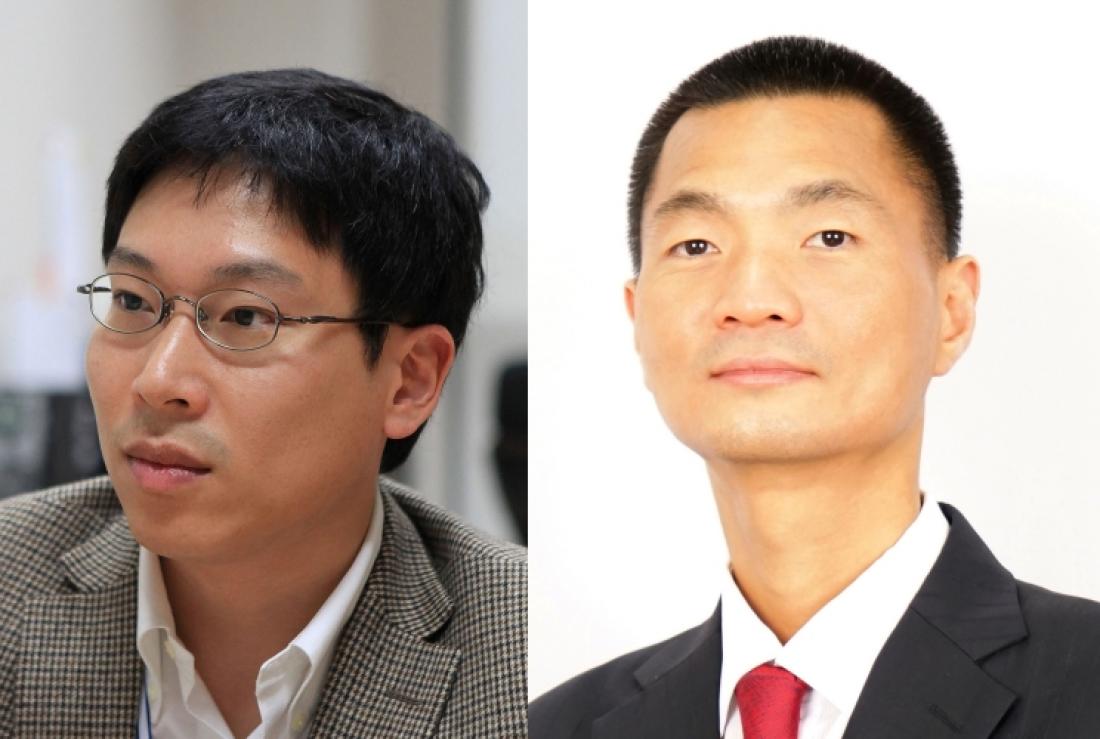□Professor (Dean) Kyung-joon Park, of the Department of Electrical Engineering and Computer Science, and Professor Bong-hoon Kim, of the Department of Robotics and Mechatronics Engineering, Daegu Gyeongbuk Institute of Science and Technology (DGIST; President Young Kuk), have had their work selected among the Top 100 National Research and Development (R&D) Achievements in 2023, as hosted by the Ministry of Science and ICT (Minister Jong-ho Lee).
□This year marks the 18th anniversary of the Top 100 National R&D Achievement, which selects some of the most outstanding national R&D achievements across the ministries to improve people’s understanding and interest in the role of science and technology in driving the country’s development and to inspire the pride of scientists and engineers. This year, a total of 854 candidate achievements were shortlisted and recommended by ministries, administrations, and agencies, with the final 100 excellent achievements (including 12 best achievements) were selected after evaluation by the Selection Evaluation Committee (Chair Professor Jae-min Park at Konkuk University), which consisted of 100 experts from industry, academia, and research, which is also open for public review.
□DGIST Professors Kyung-joon Park and Bong-hoon Kim were selected in the category of information and electronics for their research on intelligent network technology for automatically detecting and defending against combined cyber-physical attacks and self-assembly nanotechnology for Internet and IoT security systems.
□Professor Park’s intelligent network technology for automatically detecting and defending against combined cyber-physical attacks is the world’s first intelligent network technology, combining network design technology and control theory to defend against combined cyber-physical convergence attacks in real-time. Combined cyber-physical attacks manipulate the state of physical systems without causing problems in cyberspace, making it difficult to respond to such attacks with traditional cybersecurity techniques. To address this problem, Professor Park developed a new technology that combines control engineering with network design technology. His research holds significance as a research achievement as it has successfully solved a problem, which could not solely be solved by technology in one field, with interdisciplinary technology.
□Professor Kim’s self-assembly nanotechnology for Internet and IoT security systems is a next-generation security technology that uses disordered nanopatterns to fundamentally prevent online hacking attempts. Its principle is similar to implementing an identification system with each individual’s fingerprints that cannot be duplicated. While no field has been considered appropriate so far in academia to apply disordered nanopatterns, Professor Kim’s outside-the-box thinking, promoting different ways of thinking from that of conventional perspectives, has resulted in this new technology.
□DGIST Professor Park said, “I am pleased to be selected for the Top 100 National R&D Achievements, which is highly regarded in Korea. I will continue to work hard to conduct research in the relevant field and to deliver better achievements.” Meanwhile, Professor Kim said, “I am deeply honored to be selected again this year following last year. I will continue to devote myself to making good achievements in the future.”
□DGIST, Seoul National University, Yonsei University, Korea University, Sungkyunkwan University, KAIST, and POSTECH are the universities that have been selected for two or more cases in the Top 100 National R&D Achievements this year. Among the four Institutes of Science and Technology, only DGIST and KAIST are included. The Top 100 National R&D Achievements is considered as one of the most important factors in evaluating an institution’s research capabilities. Professor Kim’s continuous inclusion in the list, following last year’s recognition for best achievement, demonstrates the continued excellence of DGIST in terms of research capabilities.



